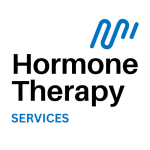HGH Therapy

What is human growth hormone?
HGH injection treatments are able to help adults who experience an HGH deficiency and treat the subsequent discomfort and disorders.
Human growth hormone (HGH) is a complex protein naturally produced by your pituitary gland near the brain. This protein directly controls the metabolic rate of cells to reproduce and repair cells, primarily to maintain a healthy body.
It also helps advance childhood growth, while continuing to provide a healthy function to your heart, organs, tissues, muscles, and bones throughout the entirety of your life. HGH is instrumental in repairing the body and leading a healthy life.
Our clinic provides FDA-approved Adult HGH Therapy and all our treatments are customized and closely monitored by experienced staff for optimal results.
Why choose HGH Therapy?
For most adults, HGH production begins to decrease as early as the age of 30+. This decline of HGH production is more significant for individuals with the minor or severe surgical intervention of the pituitary gland. HGH injection treatments are able to help adults who experience an HGH deficiency.
Common Symptoms of HGH Deficiency
Most individuals are unaware that they may be suffering from an HGH deficiency. Here are some of the signs and symptoms of low HGH production:
- muscle weakness in extremities;
- fat accumulation in the midriff region;
- osteoporosis;
- fatigue, depression, or difficulty concentrating;
- loss of libido (decrease in sex drive);
- poor wound healing;
- hair loss;
- broken or weak nails;
- dry and brittle skin.
Benefits of HGH Therapy
Some of the most significant benefits of HGH therapy include increased energy levels, improved productivity and better libido, enhanced mood, increased concentration, improved strength, and enhanced memory retention. Other benefits are as follows:
Brain Function. Receptor cells located in the areas associated with learning and memory require an ample supply of GH each day. When this is not received, as in cases of GH deficiency, these processes, along with concentration and cognitive skills will suffer. HGH therapy increases the signals to the brain’s receptor cells to improve learning retention, memory, focus, and mental performance.
Heart and Lung Function. These two are put together to discuss how growth hormone benefits affect these jointly. HGH injections improve cardiac output, increasing the ability to exercise with high intensity. This, in turn, maximizes oxygen uptake, improving overall heart and lung function.

A study at the University of North Carolina School of Medicine in Chapel Hill found that patients in the latter stages of chronic obstructive pulmonary disease who received 3 weeks of HGH injections increased their maximum respiratory force by an average of 10 to 12 mm.
This may have promising benefits in the future for patients with a variety of chronic obstructive pulmonary diseases as well as emphysema. Another benefit of HGH is the possible lowering of LDL cholesterol levels while improving HDL levels. Diastolic blood pressure has seen definite improvements in some individuals. Finally, the human growth hormone’s ability to reduce stored fat helps ease the stress on the heart.
Obesity Decrease. Since we are on the subject of excess fat, the connection between obesity and low HGH levels is becoming clearer every day. There is a reason why aging adults gain weight even when they have made no changes in diet, exercise, or lifestyle. GH is to blame.
The metabolism receives signals from HGH to process lipids, carbohydrates, and proteins efficiently, and when this signal does not come as expected, food is converted into fat rather than energy. The health benefits of HGH include improved metabolic function, weight loss, better glucose uptake, and increased energy and stamina.
Individuals with diabetes often find it easier to get their symptoms under control, and for some, six months of HGH therapy has resulted in a return to baseline insulin sensitivity.
Increased Bone Density and Reduced Risk of Osteoporosis. One of the biggest concerns, outside of dementia, for many people as they age is fractures, especially of the hip. There is good cause for this worry as 1 out of every 3 adults over age 65 will fall each year. For every five hip fractures, 1 person will face mortality within 12 months, and two others will never return to the lifestyle they had before the accident.
Immune Function. Frequent colds and viruses in later years can often be traced to a decline in growth hormone production. Among the HGH health benefits seen are increased immunity and shortened recovery times.
Sexual Function. It may seem strange to some to speak about sexual function under the health benefits of HGH therapy, however, sex has been shown to release positive endorphins into the bloodstream. This makes anything that can improve the ability to engage in pleasurable sex a positive health benefit.
Men are not the only ones to suffer from declining desire, ability to perform, and decreased pleasure. Women also suffer from low sex drive, vaginal dryness, and decreased satisfaction as a result of GH deficiency. Treatment with HGH injections has been shown to improve libido, performance, and pleasure in both genders.
Better Sleep. The older we get, the less we tend to sleep. This is not always by choice but rather an unfortunate fact of life. Less sleep means less HGH as more than half of the day’s allotment of human growth hormone is produced during deep sleep.
Conversely, less HGH in the body means a higher level of the hormone cortisol which contributes to decreased sleep. This vicious cycle is included under HGH health benefits because sleep is crucial for the repair of tissue, metabolic functions, brain functions, heart health, and so much more.
Cellular Regeneration. Cells are the building blocks of all life, and the body is in constant need of an ample supply in order to keep the internal organs from shrinking and performing poorly, to keep the muscles and bones strong, and of course, to help hair and nail growth, as well as providing a plentiful supply of collagen for firm skin.
HGH Dosage and Regimen
The starting dose of GH depends on the age and clinical condition of the patient. A dose regimen that is based on age along with dose titration has been associated with less adverse effects compared with a weight-based regimen. The following regimen is suggested:
- age younger than 30 years: 0.4-0.5 mg/day (may be higher for patients transitioning from pediatric treatment);
- age 30-60 years: 0.2-0.3 mg/day;
- age >60 years or those with diabetes mellitus or prediabetes: 0.1-0.2 mg/day.
For patients with adherence issues, a less frequent dose regimen such as alternate days or 3 times per week using the same total weekly dosage can be used.
Follow-up is usually planned at intervals of 1-2 months when the dose of GH can be adjusted by increments of 0.1-0.2 mg/day based on the clinical response, serum insulin-like growth factor-1 (IGF-1) levels, and side effects. Longer time intervals and smaller dose increments are suggested for older patients.
Serum IGF-1 levels are the main determinant for adjusting the dose of GH. A commonly used target is the upper half of the normal range appropriate for age and sex, unless significant side effects develop.
Once maintenance doses of GH are achieved, follow-up is provided at intervals of 6 months. Monitoring includes clinical evaluation, assessment of side effects, and measurement of serum IGF-1, fasting glucose, and lipid profile.

Quality of life (QOL) is also assessed using standardized questionnaires. If the initial bone mineral density findings, measured by dual-energy x-ray absorptiometry (DXA) scanning, are abnormal, repeat testing at intervals of 2-3 years is recommended.
How long to take HGH?
The duration of HGH treatment is determined individually. Patients with childhood GH deficiency who attained adult height and had persistent deficiency on retesting should continue to receive GH therapy.
GH therapy can also be continued indefinitely if benefits such as significant improvement in QOL and objective improvements in biochemistry and body composition are observed. If no objective or subjective benefits are seen after 1 year of treatment, discontinuation of GH therapy should be considered.
Side Effects
The most common side effects of GH therapy are related to fluid retention and include paresthesias, joint stiffness, peripheral edema, arthralgia, myalgia, carpal tunnel syndrome, and increased blood pressure. Most of these adverse effects improve with dose reduction.
GH therapy is associated with a mild increase in both fasting serum glucose and fasting plasma insulin levels. Patients with diabetes mellitus who receive GH therapy may require adjustment in their glucose-lowering medications.
Because GH therapy can decrease levels of serum free T4 and cortisol (thyroid and stree hormones), regular monitoring of thyroid and adrenal function is recommended. Patients on concurrent thyroid or adrenal hormone replacement may need dose adjustments after starting GH therapy.
Patients who have normal thyroid and adrenal function require monitoring of serum free T4 and assessment of the hypothalamic-pituitary-adrenal axis because GH therapy can unmask central hypothyroidism and hypoadrenalism.
Patients who are on testosterone-replacement therapy may require their GH doses to be lowered, because testosterone can potentiate GH action and exacerbate GH-induced adverse effects.
Women who are taking oral estrogen replacement therapy usually need higher doses of GH, but those on transdermal estrogen preparations may not.
Get in touch with our endocrinologist for a free consultation!
GET A FREE CONSULTATION TODAY
FREQUENTLY ASKED QUESTIONS
Finding an HGH therapist might prove to be challenging, especially now that there are quite a number of them who offer similar services. However, if you want to find the best therapist, you will need to do your research by considering factors such as credibility, licensing, professionalism, and experience to mention a few.
There are various ways you can boost the levels of HGH in the body, namely HGH injections, HGH releasing peptides, and even natural ways. Some of the natural ways include exercising, getting enough sleep, reducing stress, a healthy diet, and intermittent fasting. HGH injections, on the other hand, is whereby the growth hormones are directly administered into the body and gets absorbed into the bloodstream directly. Lastly, peptide injections stimulate the pituitary glands to produce the growth hormone naturally.
When it comes to the HGH therapy treatments, it is best to first consult your doctor in order to know the exact dosage you should be taking on a daily. Remember, our bodies are different, and self-medicating yourself might lead to either an overdose or an under dose; both of which are harmful.
In healthy men, testosterone levels between 350 ng/dL and 1000 ng/dL are referred to as “normal.” Normal physiology allows the brain and the testes to work together to keep testosterone in this range. The brain produces “signal” hormones that are responsible for stimulating testosterone production. These signals are periodically released, which in turn stimulates testosterone production. When levels of testosterone are in an acceptable range, the production of the signal hormones are slowed, which in turn allows the testosterone levels to decrease.
Hypogonadism, in a male, refers to a decrease in either testosterone production, sperm production, or both. The medical professionals at Low T Center address the testosterone aspect of this condition. Decreased sperm production requires a careful, thorough evaluation by a fellowship-trained specialist.
Benefits of testosterone replacement therapy vary based upon the pre-therapy symptoms and other factors, but they can include the following: increased energy; decreased irritability and depression; improved muscle mass and strength; improved sexual desire; improved visuospatial cognitive function and verbal memory; higher motivation; decreased body fat (optimal results received through accompaniment of a diligent diet and exercise regimen); possible improvement in erectile function; thicker skin.
